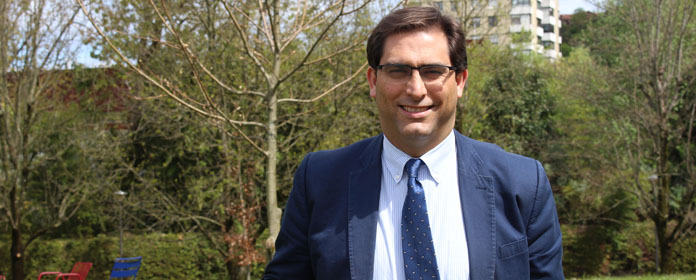News
LATEST NEWS AND EVENTS FROM THE SCHOOL OF ENGINEERING
Optimistic in the face of cancer
Francis Planes, Deputy Director Research Tecnun-School of Engineering of the University of Navarra

The devastating effect that cancer has on the lives of many individuals and families remains a reality from which we still cannot escape. Nearer or further away, we all have loved ones who encounter this disease unexpectedly and fight, hand in hand with exceptional doctors and nurses, to regain their former life or get as close to it as possible. This is the case of my mother, exemplary and inspiring in her illness, whose suffering we live, share and accept as best we can, in our case with the hope that Someone from above is watching her and will not leave her.
In parallel to this tremendous reality, which we cannot ignore, academic community awaits expectantly and enthusiastically the results of a large issue of projects, initiatives and clinical trials in the field of precision oncology, the current paradigm in the fight and research against cancer. In brief, precision oncology seeks to emphasize the heterogeneity of tumors and the need to apply personalized and targeted therapies to each patient, using information from high-resolution molecular technologies from the fields of genomics, transcriptomics and metabolomics, among others. This concept is not new and, in fact, the use of "omics" data in cancer research has been the rule for the last two decades. What is new now? What makes us more optimistic?
The reasons for this optimism are varied. First, massive DNA and RNA sequencing technologies have become substantially cheaper and are beginning to be routinely available in hospitals. For example, the clinical report of many patients already specifies the acquired mutations (subject of specific genomic alteration) in the disease. On the other hand, large-scale Genetics editing initiatives are growing, mainly based on CRISPR-Cas9 technology, which allow us to identify possible vulnerabilities and genetic dependencies in tumors.
In addition, the increase in our computing capacity, with ever cheaper and more powerful computers, is coupled with a larger issue of professionals and researchers trained in data analysis and predictive model building. These advances place us in a research environment with an unprecedented frequency and quantity of data that can now be analyzed quickly and efficiently in order to search for more effective therapies with fewer side effects.
The fact that there are already successful cases of precision oncology in the clinic also increases our optimism. This is the case, for example, of the combined use of MEK and BRAF inhibitors to treat metastatic melanomas in BRAF-mutated patients, a treatment that has dramatically reversed the survival of these patients. At summary, we are approaching crucial years in cancer research in which we hope that precision oncology will eventually explode and generate a large issue of new therapies and markers that will optimize clinical decision making.
In the Bioinformatics group of Tecnun, School of Engineering of the University of Navarrawe have been working in the field of precision oncology for years. In collaboration with exceptional biomedical researchers, we are involved in different projects and collaborations with the clear goal to capitalize all these data and generate new hypotheses, usually through algorithms and mathematical models. Coincidences of life (or not), in collaboration with the CIMA of the University of Navarra and other European entities, in this month of February we started in Tecnun a new European project focused on the disease my mother suffers from, which, naturally, I approach with tremendous enthusiasm.
Through these projects, one of our tasks at Tecnun, intrinsic to the University's own mission statement , is the training of young researchers and future PhD specialists in the field of data analysis and predictive model building. We are proud that some of them are already part of leading research centers and pharmaceutical companies in the field of cancer. This fact encourages us to continue with this training and research work because academic community is very clear that the speed and success of precision oncology will depend, to a large extent, on having a large issue of researchers capable of managing, analyzing, integrating and capitalizing on the enormous amount of biological and clinical data that are being generated in the fight against cancer.
